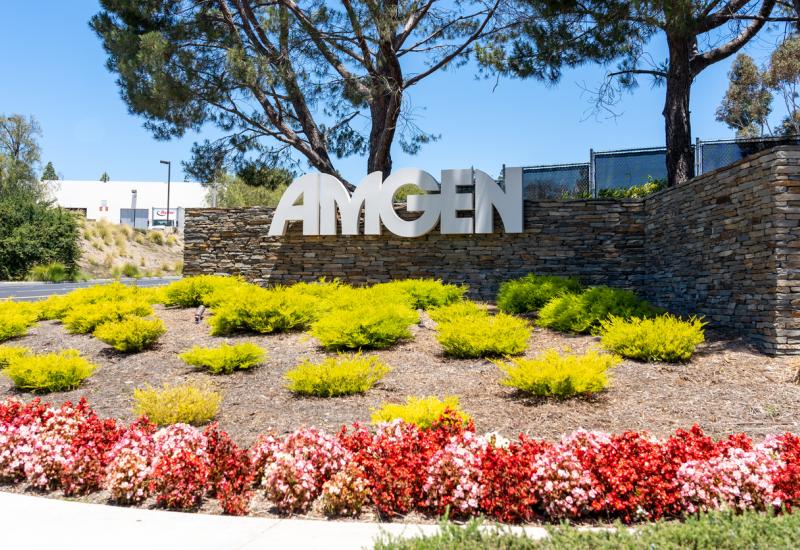
Celcuity's $5m pivot does the job
A Pfizer cast-off could become the company's first marketed drug.
A Pfizer cast-off could become the company's first marketed drug.

Gedatolisib, a PI3K/mTOR inhibitor to which Celcuity pivoted four years ago when it was cast off by its originator, Pfizer, could be headed for FDA review later this year after scoring in the phase 3 Viktoria-1 study. The data saw Celcuity stock triple on Monday, turning the group into a $1.6bn biotech and vindicating those investors who had persevered in the face of some compelling doubts.
This marks the first pivotal win for gedatolisib; Viktoria-1 enrols second-line (post-CDK4/6 inhibitor) ER-positive HER2-negative breast cancer patients, but Monday's readout specifically concerned PIK3CA-wild-types. The markets will now likely take a positive view of results from Viktoria-1's PIK3CA-mutant cohort, due later this year, and from the first-line Viktoria-2 trial that started last month.
For now the focus remains on how Celcuity scored a win thanks to its focus initially on PIK3CA-wild-type disease, which it claims is central to gedatolisib's mechanism. The contrast is PI3K inhibitors like Novartis's Piqray and Roche's Itovebi, which have been approved specifically in PIK3CA-mutated breast cancer.
Meanwhile, companies like Lilly have been leaning towards ever-more selective PI3Kα inhibition. But Celcuity insisted that activity on the PI3K/AKT/mTOR pathway should be seen irrespective of mutation status, and the Viktoria-1 data are the first tangible evidence supporting this view.
Impressive hazard ratios
The headline numbers released on Monday concerned PFS in patients with PIK3CA-wild-type disease, where a gedatolisib/Ibrance/Faslodex triplet and gedatolisib/Faslodex doublet scored medians of 9.3 and 7.4 months respectively.
These blew out of the water Viktoria-1's Faslodex comparator, which yielded mPFS of 2.0 months. The company unveiled compelling PFS curves, and called the respective hazard ratios (0.24 and 0.33) some of the most impressive ever seen in this patient group. Moreover, it claimed that OS was showing a favourable trend, even though data are immature and include significant patient crossover.
There are limited cross-trial comparators specifically for PIK3CA-wild-type disease, but those that exist suggest median PFS of 4-5 months for oral SERDs and AstraZeneca's AKT inhibitor Truqap. The latter showed an all-comers benefit, but its approval was restricted to PIK3CA/AKT1/PTEN-altered disease, since it's these patients who drove the benefit, and none was seen in PIK3CA wild-types.
The only data that appear to rival gedatolisib's are from an Ember-3 study cohort combining Lilly's SERD imlunestrant with Verzenio. This yielded 9.1 months of mPFS in all-comers, and a forest plot published in an appendix to the data in the NEJM shows similar hazard ratios irrespective of patients' PI3K pathway mutation status.
Selected data in post-CDK4/6i, ER+ve, HER2-ve breast cancer
| Project | Study | Active regimen | PIK3CA status | mPFS (active) | mPFS (control) |
|---|---|---|---|---|---|
| Truqap | Capitello-291 | +Faslodex | PIK3CA/AKT1/PTEN-altered | 7.3mth | 3.1mth (Faslodex) |
| Wild type | 3.8mth | 3.5mth (Faslodex) | |||
| Vepdegestrant | Veritac-2 | MonoRx | All patients | 3.7mth | 3.6mth (Faslodex) |
| Imlunestrant | Ember-3 | +Verzenio | All patients | 9.1mth | 3.7mth (imlunestrant) |
| Wild type | Similar treatment effect irrespective of PI3K mutation status | ||||
| Gedatolisib | Viktoria-1 | +Ibrance +Faslodex | Wild type | 9.3mth | 2.0mth (Faslodex) |
| +Faslodex | Wild type | 7.4mth | |||
Source: OncologyPipeline & NEJM.
A possible criticism of Viktoria-1 is that Faslodex control underperformed historical data, but even if 3-4 months is a more realistic comparison the gedatolisib results appear to hold up numerically.
A potentially bigger concern is toxicity, given that hyperglycaemia has tended to restrict PI3K inhibitors' therapeutic window. All Celcuity said on an analyst call was that gedatolisib was better tolerated, with lower hyperglycaemia rates, than in a phase 1 study. That showed a 96% rate of hyperglycaemia, including 26% at grades 3 or 4.
Celcuity, which started out as a cancer diagnostics company but bought gedatolisib from Pfizer in 2021 for $5m in cash plus $5m in equity, says it wants to file for approval in the fourth quarter. As expected for a molecule that's been long in development, gedatolisib has limited IP; Celcuity claims composition-of-matter protection until 2034, including a five-year extension.
Assuming no unpleasant revelations when Viktoria-1 data are presented in full, Pfizer's decision to jettison the project will remain a curiosity. One difference versus other small molecules is that gedatolisib is delivered IV, and it's notable that in breast cancer Pfizer has instead pursued oral approaches including CDK4 and KAT6 inhibition, and ER degradation.
2937













